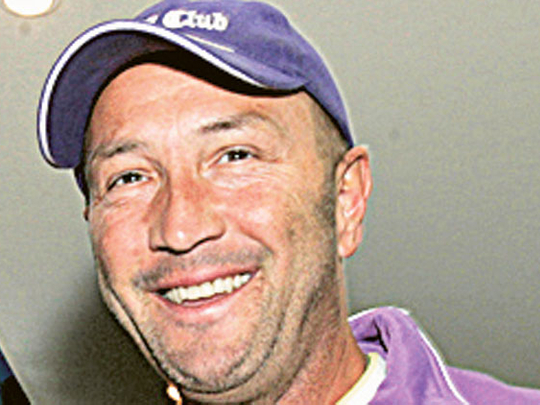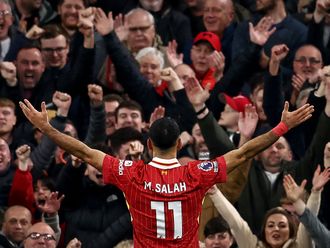
Dubai: Al Nasr coach Walter Zenga thinks the standard of football has improved in the UAE in the last six years, but warns there remains room for improvement.
The legendary Italian goalkeeper is in his second spell as a manager in the Etisalat Pro-League after a previous stint with Al Ain in 2007. After leaving the Garden City club, he coached in Romania, his home country with Catania and Palermo, and Saudi Arabia, before joining the Blue Wave in January 2011.
The 52-year-old, whose team sit fifth in the league at the half-way stage of the 2012/13 season, believes the UAE is slowly adapting to professionalism as a result of the influx of foreign stars and coaches, who have brought with them the different methods used in their native countries.
“The first time I came here was in 2007, when I started coaching Al Ain, and six years on I have to say the situation has improved,” Zenga said at the weekend’s 7th Dubai International Sports Conference.
“Professionalism has grown and I can see that in the way clubs organise the players. They are learning what it means to be a professional.
“The mindset has been evolving, but of course no results can be achieved overnight. Change happens gradually, you have to stay the course – you can’t expect to achieve excellence overnight. Passion for football cannot only be about passion for big football stars, you have to love football in your daily practice at all levels.
“We have a professional league here, but if trainers schedule training sessions in the morning, you will have to cope with the issues of some players who have to go to work or school and that is not real professionalism. People need to be put on the right track, then you have to be patient, wait for them to grow.
“If a club is hiring a foreign trainer, that is why they expect them to bring in his passion, experience, skills and methods so that everybody can follow his lead.”
Zenga believes there are many factors why the UAE league is not yet flourishing, but suggested there are simple fixes for some of the problems.
“You can’t expect to have 30,000 fans at the stadium and a highly competitive professional league in only a few years,” he said. “There are a number of issues – climate, the way calendars are structured, whether Fifa instructions should be followed or not, religious issues.
“For example the Etisalat Cup is played here on Fifa dates [when international matches are played] and you are expected to achieve great results without the best players. You cannot attract so many people to watch the matches in those circumstances.”










